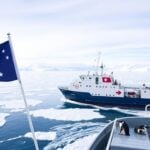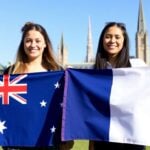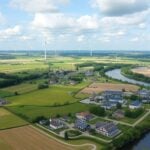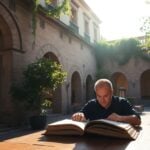Deadline: 17 April 2024
Submissions are now open for the LEO Foundation Dr Abildgaard Fellowships program to support talented emerging research leaders in establishing or expanding an independent research group and pursuing novel and important research questions within skin and skin diseases.
The proposed research activities should be ambitious, creative, and hold a potential for high impact. The aim is to offer stable funding over a five-year period to allow the Fellow the freedom to adjust the scientific course as needed during the grant period and thus establish a clear and competitive research profile with momentum.
Supported Areas of Research
- The LEO Foundation Dr Abildgaard Fellowship program is thematic. In 2024, applicants can apply within one of two research themes:
- Advanced Therapeutics Research in Skin Diseases
- This theme encompasses advanced research towards a better understanding of how to best treat, rectify, and potentially cure skin diseases. It includes research in skin genetics, epigenetics, gene therapy, cell therapy, stem cells, and the entire ‘omics’ field, including single cell sequencing and spatial transcriptomics. It covers the whole spectrum from basic understanding of mechanistic aspects, across functional in-vitro or in-vivo studies, to proof-of-principle implementations.
- Systems Medicine in Dermatology
- This theme covers all relevant dimensions relating to Prediction, Prevention, Personalization, and Participation – also known as ‘P4’ medicine – within skin research. It is cross-disciplinary in nature and includes research utilizing multiple types of data, e.g., biochemical data, genetic data, diagnostic data, treatment outcome data, comorbidity data, socio-economic data, or life-style data to create relevant insights at the individual level and thus ultimately help patients maintain the best possible skin health.
- Advanced Therapeutics Research in Skin Diseases
- The proposed research activities must have a clear focus and impact within one of the two themes and can be of a basic, translational, epidemiological, or clinical nature.
Funding
- Grants of DKK 12 million are awarded for a five-year period. The Foundation will award up to four grants in 2024, two within each theme.
- Applicants may apply for funding for the following types of expenses:
- Salary for main applicant (for applicants within clinical science, corresponding to the time commitment to research)
- Salary for others (scientific and technical employees)
- Running costs, incl. tuition fee for PhD students (maximum DKK 80,000 per year) and bench fees (if mandatory for the involved laboratory facilities)
- Equipment
- Travel, incl. conference participation
- Publication costs
- Relocation costs (up to DKK 100,000; only eligible for international applicants relocating to a Danish institution if granted a Fellowship, and costs must be reasonable and compliant with national and local guidelines for Danish public research institutions)
- Administrative costs of up to 5% of the total budget
Eligibility
- Applicants must be full-time employed at a Danish university, hospital, or other non-profit research institution during the grant period. Only minor or temporary affiliations with other institutions are allowed, and the necessity and synergy should be argued in the application.
- Different eligibility criteria apply for different types of applicants:
- Applicants within basic science must have between two and eight years of research experience since completing their PhD degree (calculated at the application deadline), i.e., be at the career stage of senior postdoc, assistant professor, or a recently appointed associate professor/senior researcher.
- Applicants within clinical science must be MDs, must have between two and eight years of research experience since completing their PhD degree (calculated at the application deadline), and must be able to commit 20-50% of their time to research. The research commitment may vary over the course of the grant period for applicants under their medical specialist training but should always be sufficient to be a present and active group leader/supervisor and cannot be less than 20% on average.
- Any leave of absence taken after obtaining the PhD degree due to parental/sick/care leave may be deducted from the PhD seniority if start and end dates and total number of weeks are indicated in the proposal and CV. Specifically for parental leave, applicants who have taken maternity or paternity leave can deduct the actual number of weeks of leave multiplied by 2.0. For other types of leave, the actual number of weeks of leave can be deducted.
- Applicants who are not affiliated with a Danish research institution at the time of submitting their proposal must have a clear agreement with a Danish research institution which is committed to hosting the grantee and research activities throughout the grant period. It is expected that grantees have established their group at the receiving institution within one year of obtaining a grant offer.
- A LEO Foundation Dr Abildgaard Fellowship is a defining, individual grant at the disposal of the Fellow. Collaborations are encouraged; however, the applicant must be the clear driver of the research activities, and the merits of collaborators will not be included in the evaluation of the proposal.
Notes
- Applicants may not already hold or, as a rule, within one year of being awarded the LEO Foundation Dr Abildgaard Fellowship, accept a Danish or international starting grant (e.g., ERC Starting Grant, Sapere Aude Research Leader Grant, Novo Nordisk Foundation Hallas- Møller Investigator Grant or Clinical Investigator Grant, Lundbeck Foundation Fellows, Carlsberg Foundation Semper Ardens grant, or similar). If an applicant has submitted or is in the process of preparing a proposal for another starting grant call, this should be mentioned in the application to the LEO Foundation.
- Applicants may submit only one application for the present call.
- An application can only have one main applicant and one host organization to which all funding will be paid out. If an application involves collaboration(s) which require redistribution of funds, such redistribution and related reporting is the responsibility of the main applicant and host institution.
- A LEO Foundation Dr Abildgaard Fellowship grantee cannot apply for other research grants from the LEO Foundation until the last year of the grant period of the Fellowship grant, and any new grant awarded by the Foundation cannot be initiated until the Fellowship grant has ended.
- The LEO Foundation only supports investigator-initiated, independent clinical trials, i.e., trials that are conducted in collaboration with industrial partners or have potential commercial impact for industrial partners are not eligible for funding.
For more information, visit LEO Foundation.


























